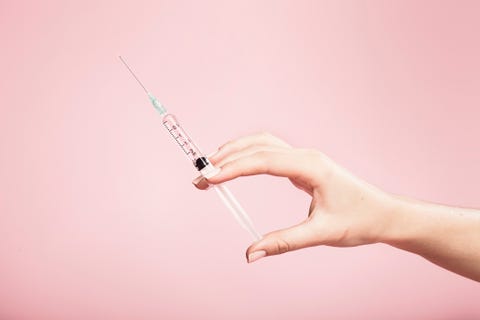Here's Everything You Need to Know About the Measles Vaccine

The Centers for Disease Control and Prevention reported Wednesday that people in 21 states and the District of Columbia have contracted measles. So far, 107 people have been effected during this recent outbreak — and this number will likely exceed last year’s number of 118 cases, according to USA Today.
All this talk about measles might have you wondering whether there’s a chance you could contract the disease, even if you’ve been vaccinated.
Here’s everything you need to know about the measles vaccine.
When was the measles vaccine invented?
The measles vaccine became available in 1963, according to the Immunization Action Coalition. In 1971, the measles vaccine was combined with the mumps and rubella vaccines to form the measles, mumps, and rubella (MMR) vaccine.
How old do you have to be get the measles vaccine?
The CDC recommends the vaccine be delivered in two doses. Kids should get their first shot between 12 and 15 months old, and their second between four and six years old.
Unvaccinated adults born after 1957 should get at least one dose. People born prior to 1957 were likely exposed to the measles and are therefore considered immune.

Paper Boat CreativeGetty Images
Can you get measles if you’ve been vaccinated?
First things first: The MMR vaccine is very safe and effective. One dose is around 93 percent effective at preventing measles, and two doses are around 97 percent effective.
That means it’s possible, but extremely rare, to contract measles after you’ve been vaccinated, as the Mayo Clinic pointed out.
When the U.S. was hit with a record-breaking 667 measles cases in 27 states in 2014, the majority of people who got sick were unvaccinated.
How long does a measles vaccine last?
If you already got the government-recommended dosage of the MMR vaccine, the CDC says you don’t need to re-up.
“CDC considers people who received two doses of measles vaccine as children according to the U.S. vaccination schedule protected for life, and they do not ever need a booster dose,” the organization says.
Source: Read Full Article




